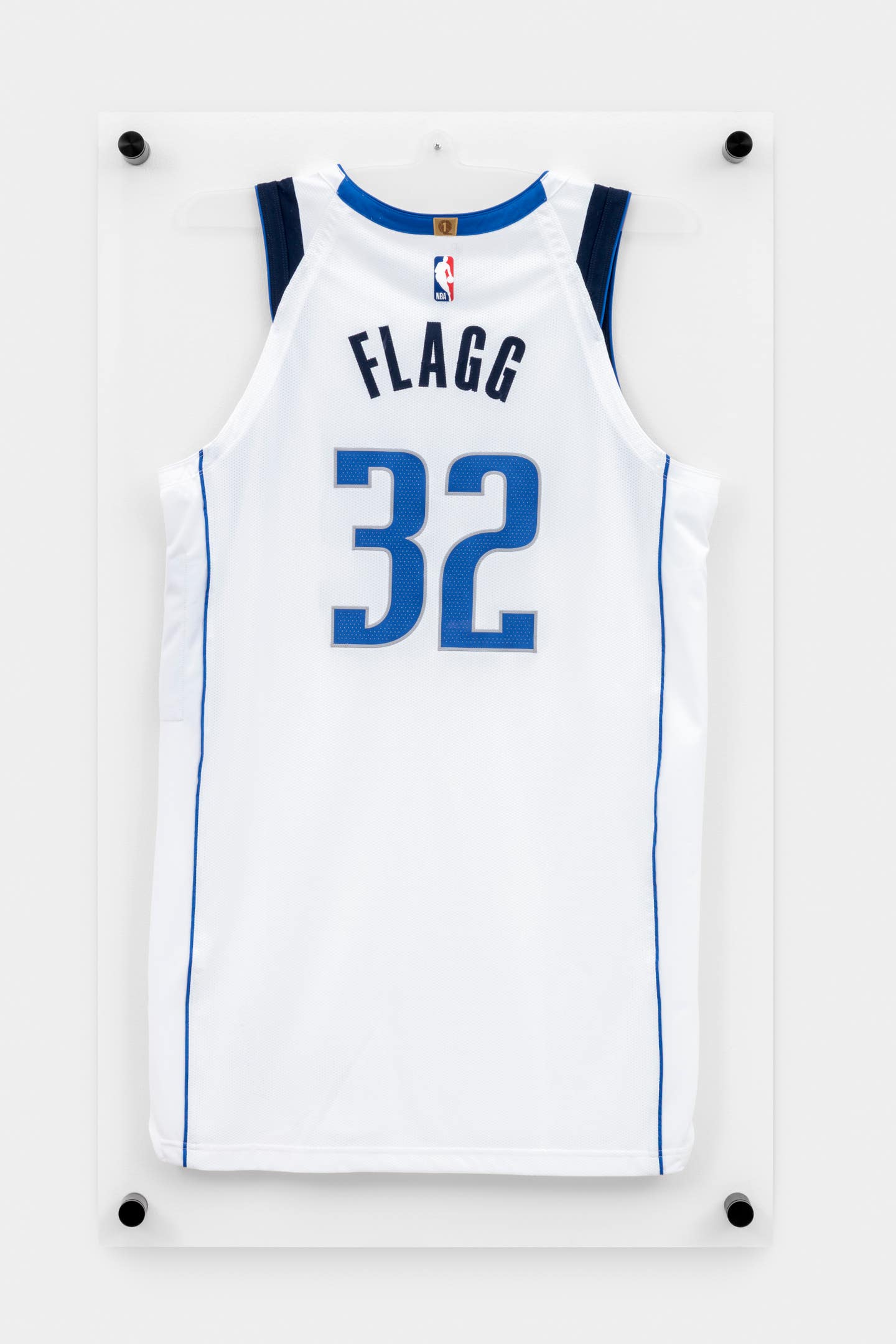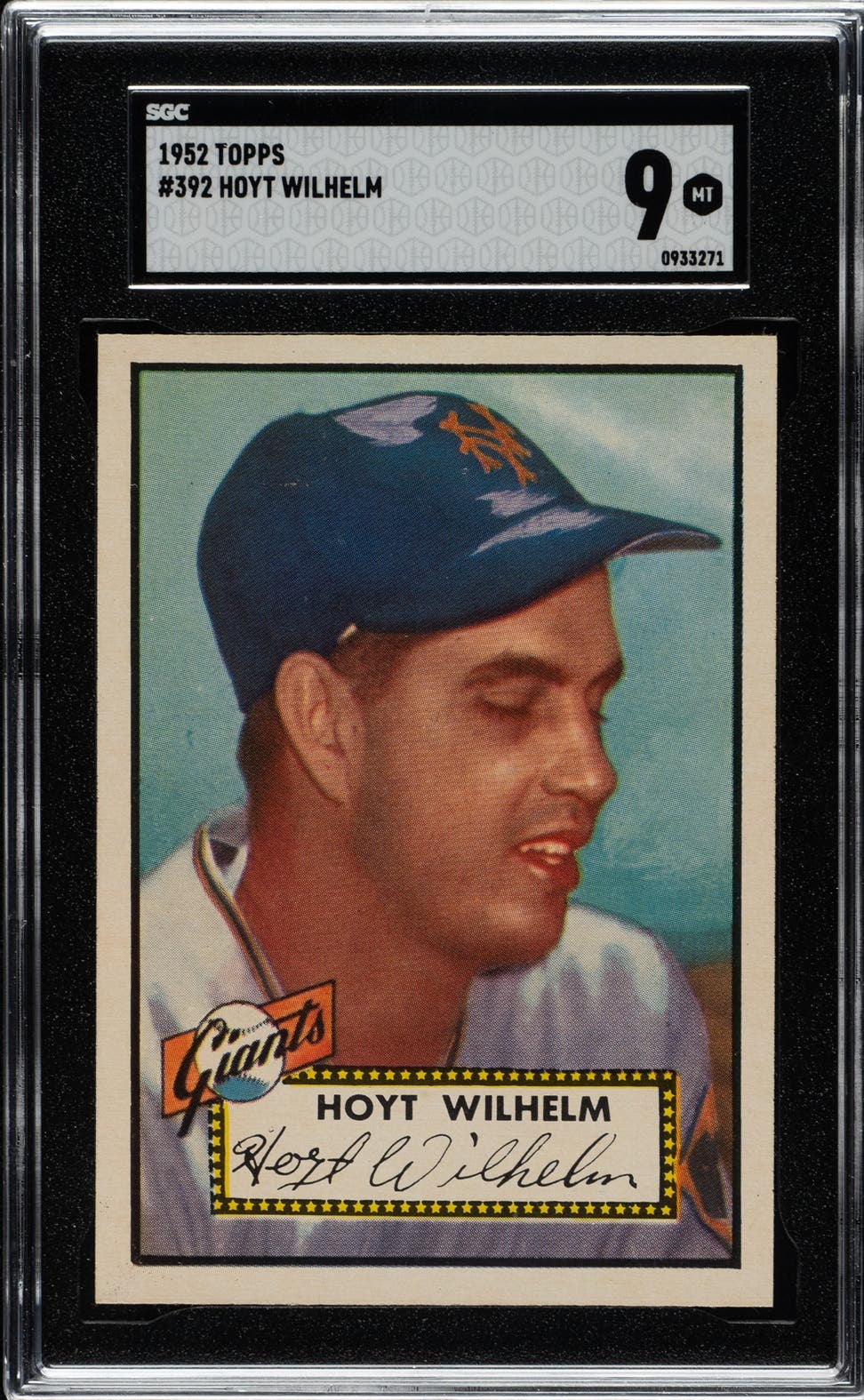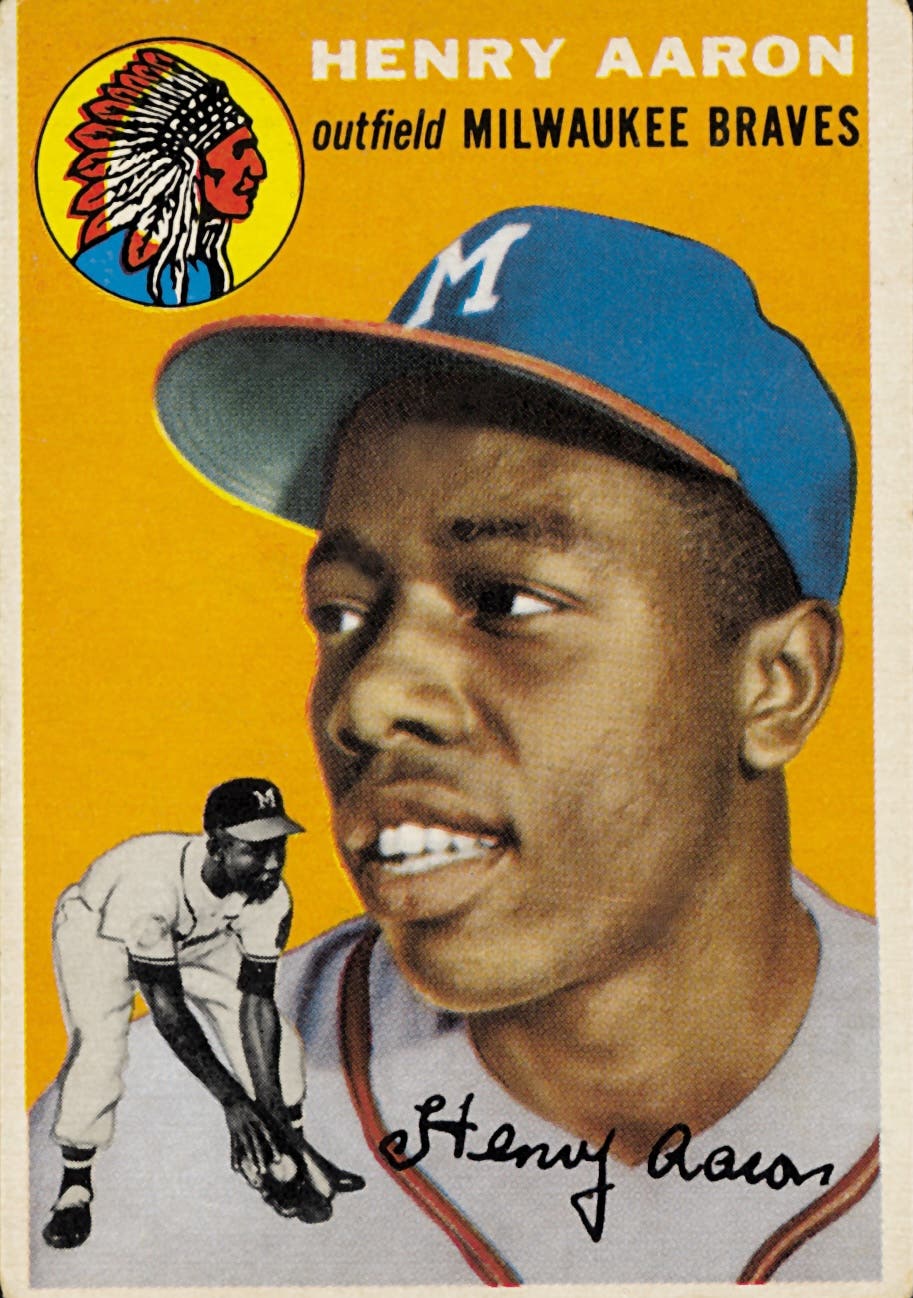News
A look at MLB players who took the league by storm and fizzled shortly after
By Brian Flinn
At the end of each regular season, the time comes to hand out the hardware including the Rookie of the Year award. Many times, that award has been won by players who will continue to compete at a high level for many years. But there are other cases when a player has a magical season only to not reach that pinnacle again and fade away.
Sometimes that is the result of an injury. Other times, it could be from a change in the team’s philosophy about that player. And then there still could be the instance that the skills diminish as quickly as they rose to take home the trophy. This can be disappointing for collectors because rookies are where all the speculation and in many cases, deep investment takes place. Let’s look back at some of these “one-year wonders” to see not only the magical award-winning season they had but also what led to their quick demise back to relative obscurity.
Chris Coghlan
2009 NL Rookie of the Year
Coghlan was drafted by the Florida Marlins in 2006 and toiled around the minors for three seasons before making his debut in 2009. It was a good one as his confidence grew throughout the season, especially after the All-Star break. He led all hitters in the majors after the break, hitting .372. Coghlan became the first rookie ever to have over 40 hits in back-to-back months during August and September. This late momentum carried him to the Rookie of the Year award for the National League. He even finished 28th in the MVP voting. His playing time diminished over the next five seasons due to injury and lack of performance. This led him to bounce between three more teams. One stop was the 2016 Chicago Cubs where he won a World Series. Key Rookie Card: 2009 Topps Update
Geovany Soto
2008 NL Rookie of the Year
Not only did Soto win the National League Rookie of the Year Award, but he also finished 13th in the MVP voting. He hit 23 home runs with 86 RBI and hit .285 in 141 games during the 2008 season. He also caught Carlos Zambrano’s no-hitter. He would not hit more than 17 home runs or drive in 54 runs in any of his other 12 seasons. Soto started with the Chicago Cubs but also played for the Texas Rangers, Oakland A’s, Chicago White Sox and Los Angeles Angels. Key Rookie Card: 2006 Topps
Bobby Crosby
2004 AL Rookie of the Year
In what could be considered one of the weakest rookie classes in many years, Crosby was the unanimous choice for American League Rookie of the Year while playing for the Oakland A’s in 2004. He beat out Shingo Takatsu (who?) for the award even though he batted .239 but hit 22 home runs with 64 RBI. At the time, that was the lowest batting average ever for a Rookie of the Year. Crosby would only play in over 100 games one more season in his career. He is the son of former major leaguer Ed Crosby, who played in the ’70s. Key Rookie Card: 2001 Bowman Draft Picks
Angel Berroa
2003 AL Rookie of the Year
A 9-year veteran of four teams, Berroa played most of his career with the Kansas City Royals. The shortstop took the ROY in 2003 after he hit .287 with 17 home runs, 73 RBI and 21 stolen bases. He beat Hideki Matsui by only four votes, the closest since 1980. Berroa’s hitting stats continued to dwindle over subsequent seasons while he led the American League in fielding errors over three straight seasons. Key Rookie Card: 2003 Bowman Chrome Draft Gold
Jason Jennings
2002 NL Rookie of the Year
Jennings won the ROY in 2002 for the Colorado Rockies in a year with a weaker crop of candidates. He beat out Brad Wilkerson and Austin Kearns in voting. Jennings finished 2002 with 16 wins but a 4.52 ERA in the thin air of Colorado. He set a record by being the first pitcher to hit a home run and throw a complete game shutout in his major league debut. After 2002, Jennings would not have a winning record again over 8 seasons and would only have a sub-4 ERA once. Key Rookie Card: 1999 Bowman
Scott Williamson
1999 NL Rookie of the Year
His story is the typical definition of this article: meteoric rise into the big leagues quickly and then fall even quicker. Williamson joined the Cincinnati Reds on Opening Day in 1999 after just over a season in the minors. He never looked back finishing the season with a 12-7 record, 2.41 ERA and 19 saves. That led to making the NL All Star team and taking the NL ROY with 75% of the vote. But the injury bug hit Williamson repeatedly as he would only pitch over 50 games in one more season over his 9-year career. Key Rookie Card: 1998 Bowman
Marty Cordova
1995 AL Rookie of the Year
Another player who had injuries plague him for much of his career was Marty Cordova. The Minnesota Twins outfielder won the AL Rookie of the Year in 1995 after hitting .277 with 24 home runs and 84 RBI. He took the award over some other top players including Garrett Anderson, Andy Pettitte, Troy Percival and Shawn Green. Cordova then followed up his ROY campaign with another great season in 1996 hitting .309 with 111 RBI. Then back injuries took their toll as his games and production dwindled. He would reach 20 home runs only one other time in his career with the Cleveland Indians in 2001. Key Rookie Card: 1995 SP Foil
Bob Hamelin
1994 AL Rookie of the Year
Nicknamed “The Hammer,” Hamelin hit .282 with 24 home runs in 1994 to win the award in the season shortened by the players’ strike. The vote was almost unanimous as he beat out a player who would go on with a little bit better of a career, one Manny Ramirez. Hamelin only ended up playing six seasons due to injuries to his legs as well as issues with his eyesight. He would only hit double digit home runs one more season. Key Rookie Card: 1990 Upper Deck
Joe Charboneau
1980 AL Rookie of the Year
The first many baseball fans think of as the quintessential “One Year Wonder” is Joe Charboneau. He won the AL ROY in 1980 with the Cleveland Indians with a season where he hit .289 with 23 home runs and 87 runs batted in. He took 73% of the votes for Rookie of the Year. But just as quickly as he moved to the forefront of AL rookies, he faded away by playing only 48 games in 1981 and 22 games in 1982. Then he was out of baseball at age 27, holding the MLB record for fewest games played in a career for a ROY award winner – 201 games. His decline was due to a back injury he sustained in a 1981 spring training game that he never seemed to recover from. A character in the clubhouse during his short stint, Charboneau had many tall tales of exploits including fixing a broken nose with pliers or cutting out a tattoo with a razor. Who knows what is true or stretched truth. He also holds one more claim to fame, playing an extra in Robert Redford’s baseball film, The Natural. Key Rookie Card: 1981 Topps
John Castino
1979 AL Rookie of the Year
Castino’s rookie season is unique in that he ended up tying Alfredo Griffin for the award. The Minnesota Twins third baseman ended the season batting .285 with only 5 home runs and 52 RBI. The fact that Griffin was a lighter hitting shortstop and a weak 1979 rookie crop led to both getting 7 first place votes in the voting. Castino would play over 100 games for the Twins over the next four seasons before ending his career in 1984 due to a back injury. Key Rookie Card: 1980 Topps
Butch Metzger
1976 NL Rookie of the Year
At a time when saves were not a prominent category for pitchers, Metzger posted 16 along with 11 wins and a 2.92 ERA to tie for the 1976 NL ROY with Pat Zachry while pitching for the San Diego Padres. He pitched in 77 games that year and then 75 more in 1977 but only 100 for his remaining three seasons in baseball. He pitched for a total of five teams in his five-year career but 1977 started his woes with control that he would never recover from. Key Rookie Card: 1976 Topps
Ken Hubbs
1962 NL Rookie of the Year
Hubbs took the rookie trophy while playing for the lowly Chicago Cubs in 1962 at the young age of 20 years old. The class of rookies that year was as slim as possible as Hubbs took the award among a ballot with only two players – Hubbs and Donn Clendenon. With the minimal choices of players, big time stats weren’t required to win the award as Hubbs hit .260 with 5 home runs and 49 RBI. But he stunned in the field at second base and took the Gold Glove that year. He was a top-notch athlete in high school, not only in baseball, but was also recruited to play football for Notre Dame and basketball for UCLA and coach John Wooden. Sadly, Hubbs only played two full seasons of baseball because in January 1964, he died in a plane crash while piloting the plane in Utah. Key Rookie Card: 1962 Topps
Joe Black
1952 NL Rookie of the Year
For Joe Black, winning the Rookie of the Year in 1952 for the Brooklyn Dodgers, was one of many accolades for the pitcher. He had already been pitching in the Negro Leagues for seven years, winning two Negro League titles. His rookie season (in which he roomed with Jackie Robinson) proved his best by far as he won 15 games, had 15 saves with a masterful 2.15 ERA. In fact, he missed taking the ERA title for the league by only eight innings. Not only did he win Rookie of the Year but also finished third in the NL MVP voting. He also became the first black pitcher during that magical rookie season to win a World Series game. Unfortunately, he would win only 30 more games over six seasons. He would go on to work for the commissioner’s office as an advocate for black players and late in life, played a fictional baseball player on The Cosby Show. Key Rookie Card: 1952 Topps
Sam Jethroe
1950 NL Rookie of the Year
Speed defined Jethroe and that led to him getting the nickname “The Jet.” Another player who spent most of his career in the Negro Leagues before integration, he played six seasons there before he entered the big leagues with the Boston Braves. He won the NL ROY in 1950 batting .273 with 18 home runs and 35 stolen bases. That tally for swiping bags would lead the National League and he would swipe 35 more in 1951 to lead the league again. He would play only three more seasons before leaving baseball. Jethroe had vision problems but it was rumored that he was actually older than what was listed. Key Rookie Card: 1950 Bowman








